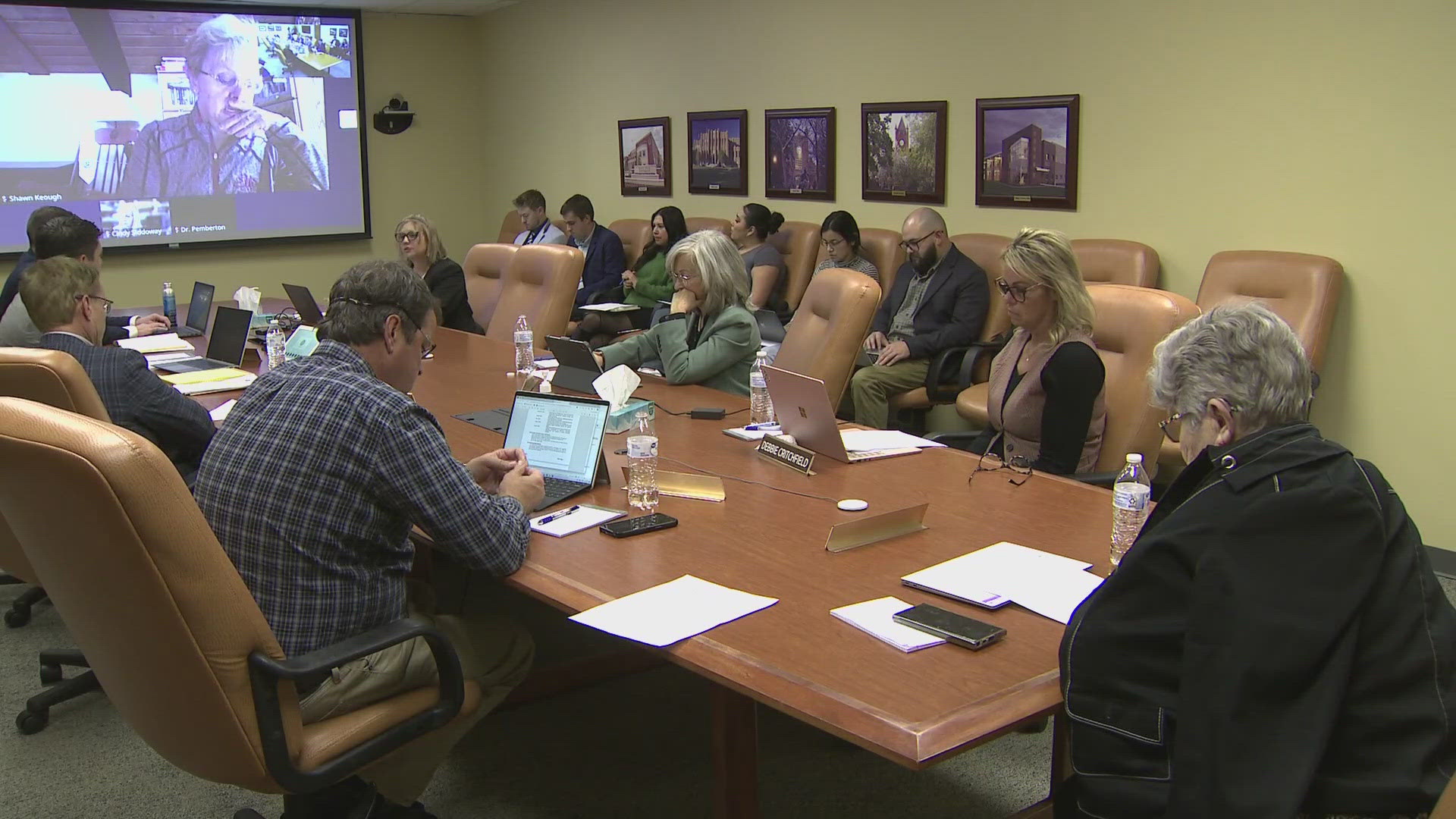BOISE, Idaho — Inside a Boise boardroom, Idaho's education leaders are taking a hard look at a proposed new course of action.
Calling them "hard conversations," Idaho Board of Education executive director Joshua Whitworth launched Thursday's meeting discussing a draft resolution regarding diversity, equity and inclusion programs.
"This is not about removing support where people need it, but organizing as such that all students have access, a really inclusionary point of view," Whitworth said.
The proposed resolution states, in part, "Institutions shall ensure no central office, policy, procedure, or initiative is dedicated to diversity, equity, or inclusion."
In other words, DEI offices and centers across Idaho's four public colleges and universities could be eradicated. That includes the Diversity and Equity office at the University of Idaho.
Whitworth says the resolution aims to look at students holistically as a student body and not focus on one group over another.
Idaho lawmakers have, for years, been cutting DEI initiatives within higher education, arguing it holds certain groups as special classes above other students.
U of I alum Ismael Mendoza says DEI programs aren't about excluding other students.
"The word Equity, Diversity Inclusion, I feel like people think [do] you need to be diverse just to be a part of these organizations? I look at these offices more as [like] equalizers," Mendoza said.
However, the perception of exclusion or even segregation has prompted lawmakers to propose legislation against DEI.
"There was diversifying and segregating groups, that's not how you get equal treatment," Senator Scott Herndon (R- Sagle) told KTVB in February. "Where you get equal treatment is basically have a level playing field."
Last month, a legislative task force began scrutinizing DEI within Idaho's colleges.
University of Idaho student Andrea Morales told KTVB she would've been lost without such programs.
"These programs not only cultivated a sense of belonging for me at the University in a place where I feel like I see very little representation," Morales said.
At least one board member worried Thursday the resolution's broad language may mean unintended cuts.
Kurt Liebich expressed concern that programs that support first-generation or Native American students may be tossed out through interpretation of the resolution.
"What I'd hate to see is we get rid of stuff that really makes a difference for students," Liebich said. "What I'd like to see if we really vet the language with the university presidents to ask, 'If this is the language what changes on your campus?'"
No action was taken Thursday, as the meeting was an informational discussion; the state board will now bring the resolution to each university's leadership to discuss it. It must go through a committee before it goes to the board for a final vote.
Though no action was taken at the state level, Idaho State University has already taken action of its own to restructure its diversity and gender resource centers. In a letter, it announced those would be eliminated and replaced with the Office of Equal Opportunity and Title IX, which will be considered student support services.

